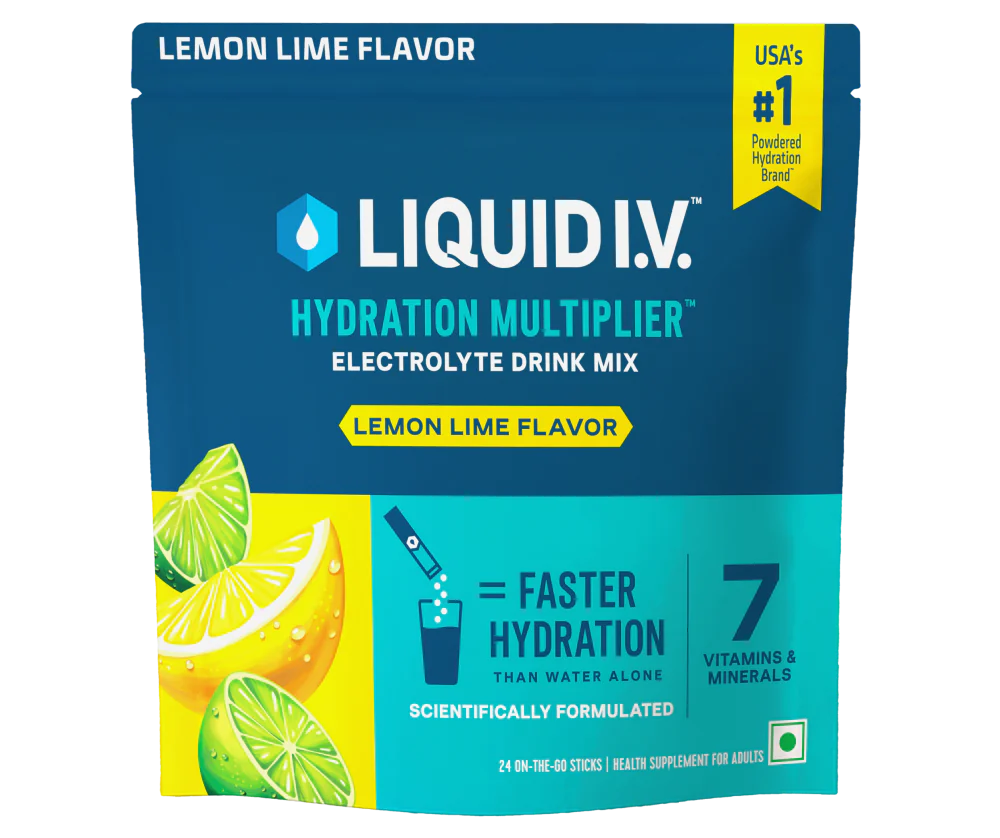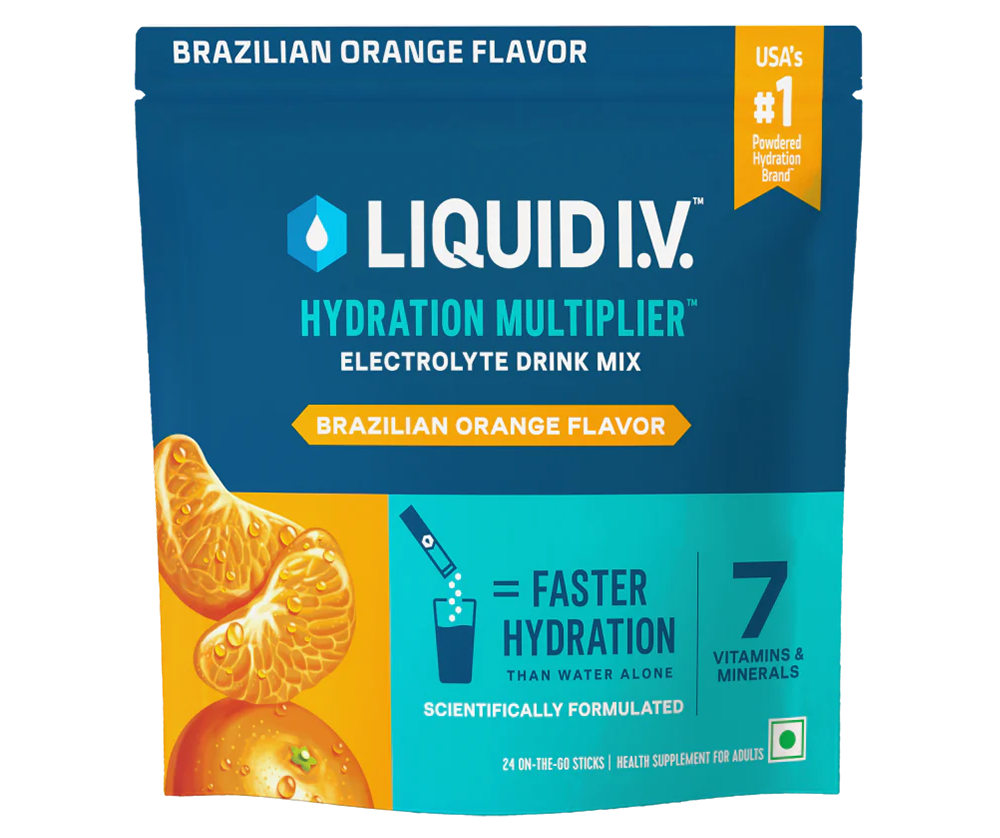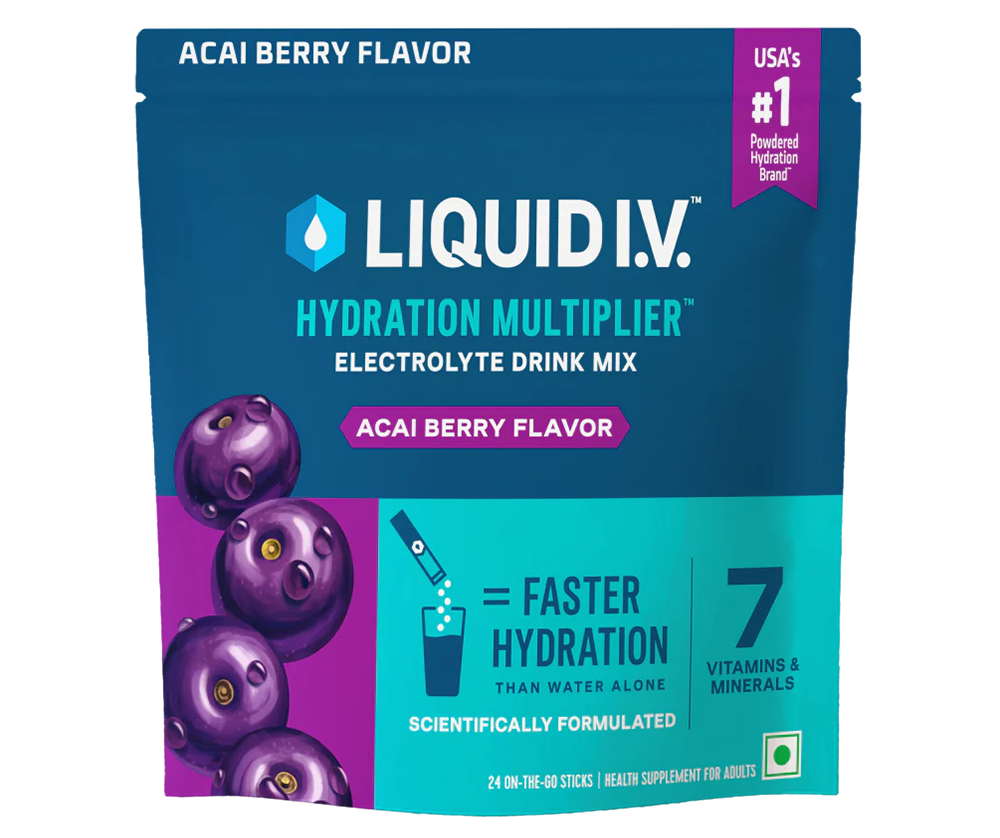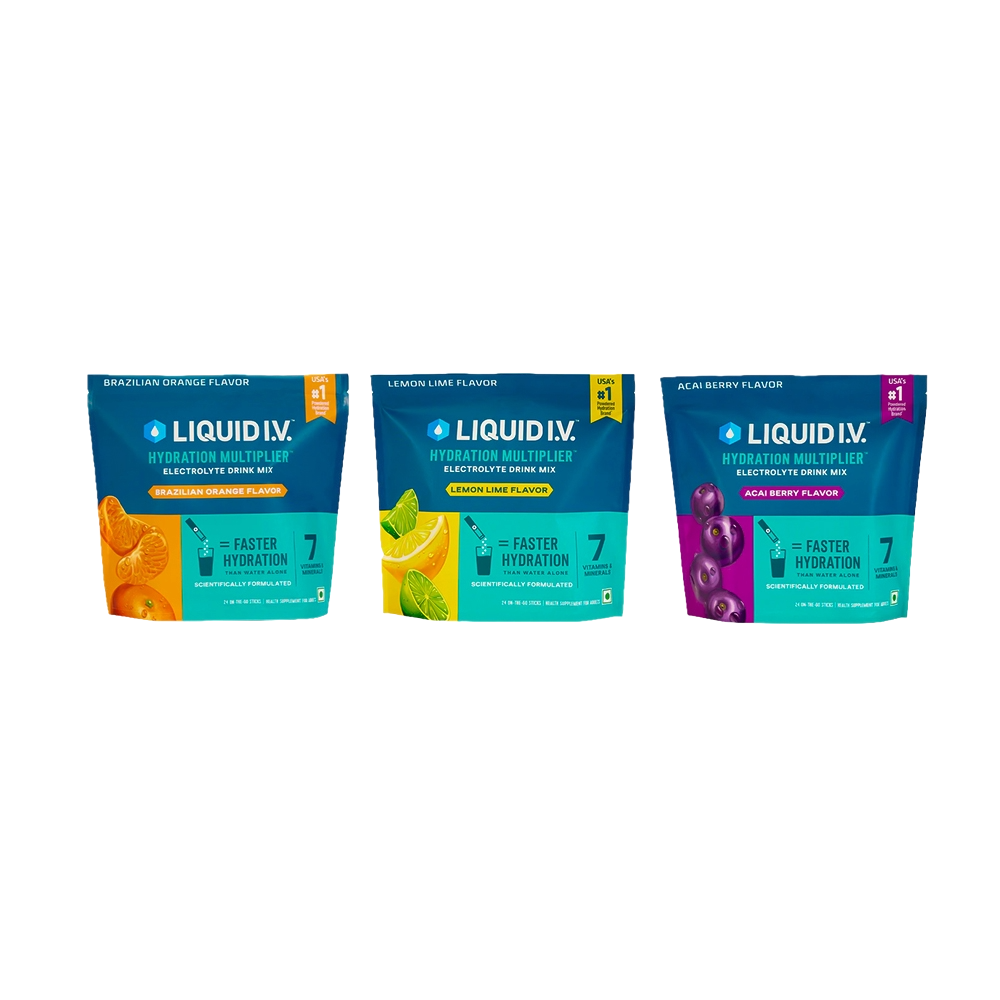Understanding Hypertonic Dehydration & How To Stay Hydrated
Dehydration isn’t just about forgetting to drink enough water - it can get way more complicated. Hypertonic dehydration is one of those sneaky types you want to understand. Instead of just losing fluid, this condition happens when your body loses more water than salt, throwing off the balance of your electrolytes. The result? Sodium levels spike, making things even tougher for your system to function properly. (1)
When your body's water - to - sodium ratio gets out of whack, symptoms can hit hard. Without enough water to dilute the sodium, cells shrink, leading to dizziness, confusion, and even serious complications if left unchecked. (2) Recognizing hypertonic dehydration early is key to preventing bigger issues, and knowing the difference can help you rehydrate the right way - because sometimes, chugging plain water isn’t enough! Let’s get into what causes it and how to tackle it effectively.
What is Hypertonic Dehydration?
Hypertonic dehydration is basically your body’s hydration system getting thrown off balance. Picture your body's fluids like a lightly salted mix - normally, water and sodium stay in sync. But in hypertonic dehydration, you lose more water than salt, making the remaining fluids extra concentrated. That means too much sodium hanging around in your bloodstream without enough water to even it out. (3)
This imbalance messes with your cells in a major way. Thanks to osmosis = your body’s natural fluid - moving process, water shifts from inside your cells to the saltier, dehydrated areas outside. The result? Cells start shrinking, and since brain cells get hit hard, symptoms like confusion, dizziness, and severe fatigue can follow. This isn’t just about feeling a little thirsty - hypertonic dehydration may need serious attention to restore balance before things get worse. Keeping those fluids, steady is key to avoiding these complications! (3)
Symptoms of hypertonic dehydration
Hypertonic dehydration hits differently because it’s messing with your electrolyte balance, not just fluid levels. Your body's cells are losing water! (1,2,4)
Early Signs - One of the first red flags? Extreme thirst. When sodium levels spike, your body goes into panic mode, demanding more water to balance things out.
As It Gets Worse - you might feel restless and irritable? That might be dehydration creeping in. Fuzziness, fatigue, and headaches can follow, making everything feel off.
Physical Red Flags
- Dry mouth
- Dark - coloured pee
- Not peeing as often
Electrolyte imbalances can trigger muscle soreness and weakness, but it can also get severe quickly, you should take a judicious call to consult a healthcare provider.
Causes of hypertonic dehydration
Hypertonic dehydration happens when your body loses more water than sodium, or when you overload on sodium without enough water to balance it out. A few things can throw this delicate fluid balance off:
Not Drinking Enough Water - Plain and simple - if you’re not sipping enough water, especially when you're sweating or losing fluids, your body’s hydration levels take a hit. Less water means a higher concentration of sodium hanging around. (5)
Losing Too Much Water - Excessive sweating can make you lose way more water than normal. If you're not replenishing fast enough, dehydration sneaks in. (1)
Bottom line? Hydration isn’t just about chugging water - it’s about maintaining the right balance of fluids and electrolytes so your body can keep things running smoothly!
However, important to note hypertonic dehydration can lead to real serious medical problems - be aware of when to see your doctor.
Tackling hypertonic dehydration
Fixing hypertonic dehydration isn’t just about guzzling water - it’s about restoring balance carefully, so your body doesn’t freak out from sudden changes. The goal? Gradual rehydration, because flooding your system too fast can also lead to complications. (1,3)
So, to rehydrate safely:
- Start with fluids low in electrolytes. Plain water is a good first step, but special hydration solutions formulated for hypertonic dehydration can help regulate sodium levels.
- Take it slow. Chugging a ton of water at once isn’t the move - steady, controlled sips prevent sudden shifts that could affect your cells.
- Monitor symptoms. If dizziness, weakness, or confusion persist, you may need to get medical attention.
The key is getting back to hydration without overwhelming your body. Knowing how to do it right makes all the difference!
Conclusion
Hypertonic dehydration is a type of fluid imbalance - it’s not just about needing more water; it’s about losing more water than sodium, which throws off your body’s entire system. When that happens, water gets pulled out of your cells, affecting their function. That’s why symptoms like intense thirst, irritability and confusion can show up, making it crucial to recognize and act fast.
This condition can creep up from not drinking enough or losing too much fluid. The fix? Slow and steady rehydration. Chugging water too quickly can cause its own problems, so restoring balance gradually is key. Understanding hypertonic dehydration isn’t just about knowing the science - it’s about protecting your health by staying hydrated and catching the signs before they turn serious!
FAQs
-
How to prevent hypertonic dehydration?
Preventing hypertonic dehydration primarily involves ensuring adequate water intake, especially in situations that increase fluid loss.
-
How does hypertonic dehydration differ from other types of dehydration?
Dehydration is basically an imbalance of water and electrolytes. You usually lose water and sodium, but if you are losing more water than sodium your body experiences hypertonic dehydration.
-
What is the tackling means for hypertonic dehydration?
For managing hypertonic dehydration start by slowly drinking water. You can also consume electrolyte enhanced solutions especially formulated for rehydration. However, if you continue to feel tired and irritable after sufficient rehydration, you may want to consult a healthcare professional.





